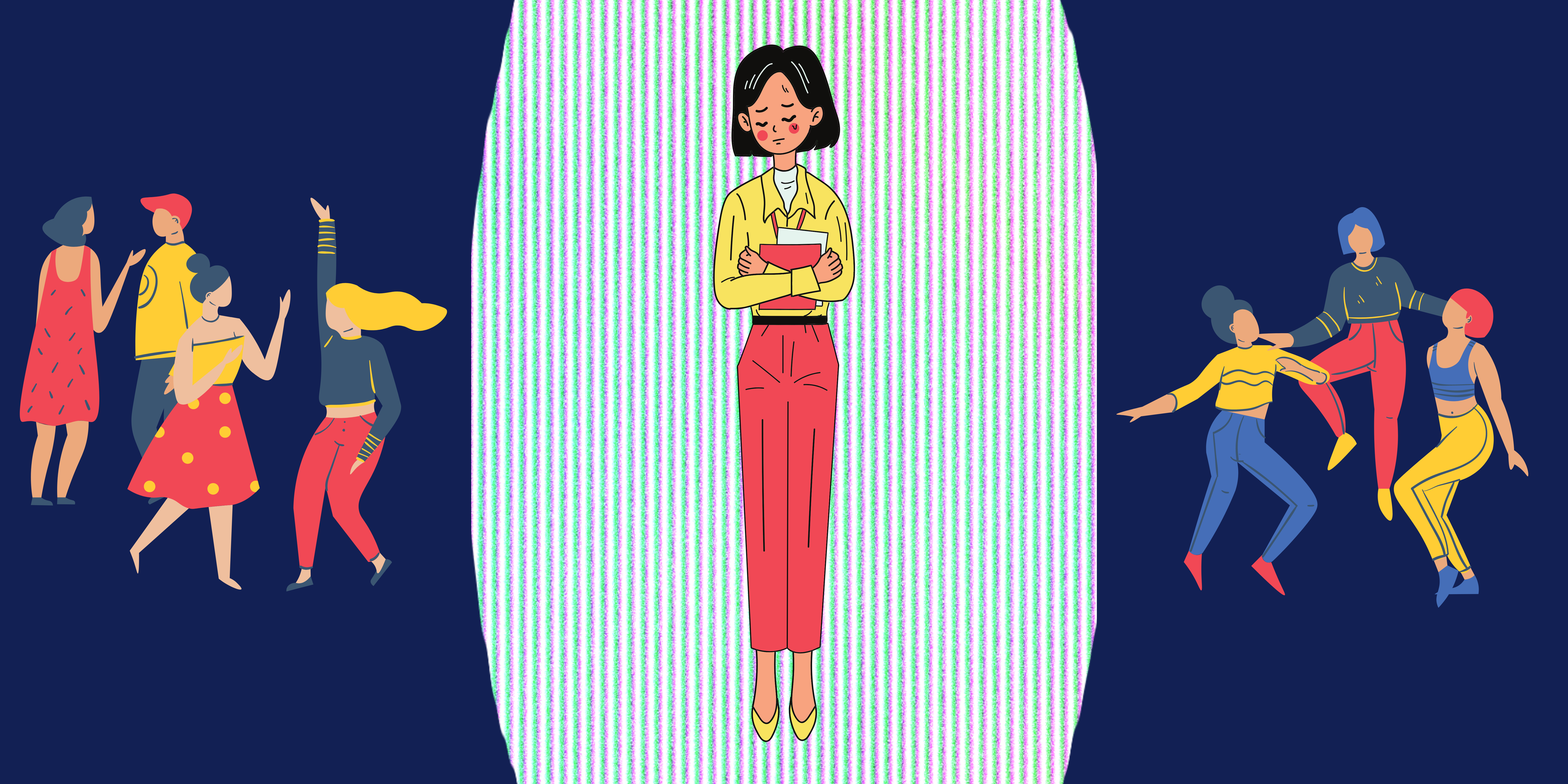Heart beating, palms sweating, stomach churning, intensifying fear: These are all symptoms of social anxiety. Socially anxious students may be avoiding these symptoms this semester with the aid of the current era of remote learning.
“It feels like my body is frozen…(like) a bucket of water drops on you. I want to speak but I can’t.”
Claudia Juárez, UT Austin Sophomore
In the age of COVID-19, pre-recorded classes are used to keep students safe from the pandemic, but these classes could also benefit students with social anxiety. Pre-recorded classes can reduce or eliminate the triggers of social anxiety present in in-person classes. There is currently an online petition created by members of the UT student government to continue the offering of distanced learning for students with disabilities such as social anxiety even after COVID-19 has eased.
“I was having anxiety attacks my first day (of class) every time I went somewhere new,” said Mackenzie Ulam, president of the UT chapter of the National Alliance on Mental Illness.
Approximately 12% of Americans will experience debilitating social anxiety defined by significant impairment in regular functioning during the course of their lives, the National Social Anxiety Center reports.
The emergence of an anxiety disorder can occur at any age but often will surface during a person’s teens or 20s, the UT Student Affairs Division wrote on its website. This age range means students often experience the emergence of social anxiety during college, potentially impacting their learning experience.
“(In class) I don’t… want to ask certain questions,” Juárez said. “‘Cause it’s like I go to UT, am I really going to ask this? Everyone’s going to think I’m dumb. Even the professor might think I’m dumb and call me out on it.”
The fear of being perceived as dumb is a common trait in those with social anxiety. This fear can be triggered by numerous scenarios. Triggers of social anxiety include: introducing yourself, “small talk” with classmates, asserting your needs with those in authority such as professors and answering or asking questions in a formal setting, reports the UT Student Affairs Division.
“You’re having to deal with having to do two things at once: trying to learn the content and trying to work through…anxiety,” said Althea Woodruff, UT’s project coordinator for well-being in learning environments. “You’re basically having to do double or more of the work emotionally and academically.”
Last semester, UT student government officials introduced a petition in coordination with disability justice advocates to ensure access to online material such as recorded lectures to aid students with social anxiety and other disabilities even after the pandemic eases.
Vinit Shah, UT’s student government chief of staff, said recorded lectures aid students because they cannot just ignore their anxiety.
“There is no way to challenge yourself out of anxiety,” Shah said. “It’s like learning to swim. When professors say… ‘just get over it,’ it’s really insulting…it’s like expecting a baby to be an Olympic swimmer right off the bat.”
Students with social anxiety may already be eligible for certain accommodations through UT’s services for students with disabilities department. However, accommodations are decided on a case-by-case basis rather than having pre-created accommodation plans available.
Students must go through a five-part plan to qualify for accommodations. This plan includes providing documentation of their disabilities in an approved format by the department, scheduling and attending an intake appointment with the department, completing multiple forms and signing multiple documents, reports the department on their website
Woodruff said that having recorded lectures available is the type of accessible accommodation that gives students much-needed flexibility.
“It lets the students know that you actually care about them and you’re being empathetic to their situation,” Woodruff said. “You want to try to be as accommodating as you can to as many students as you can.”
Featured Image by Kara Fields
